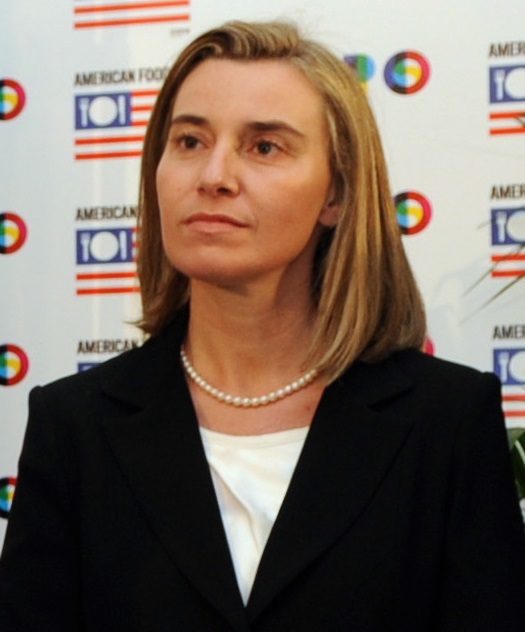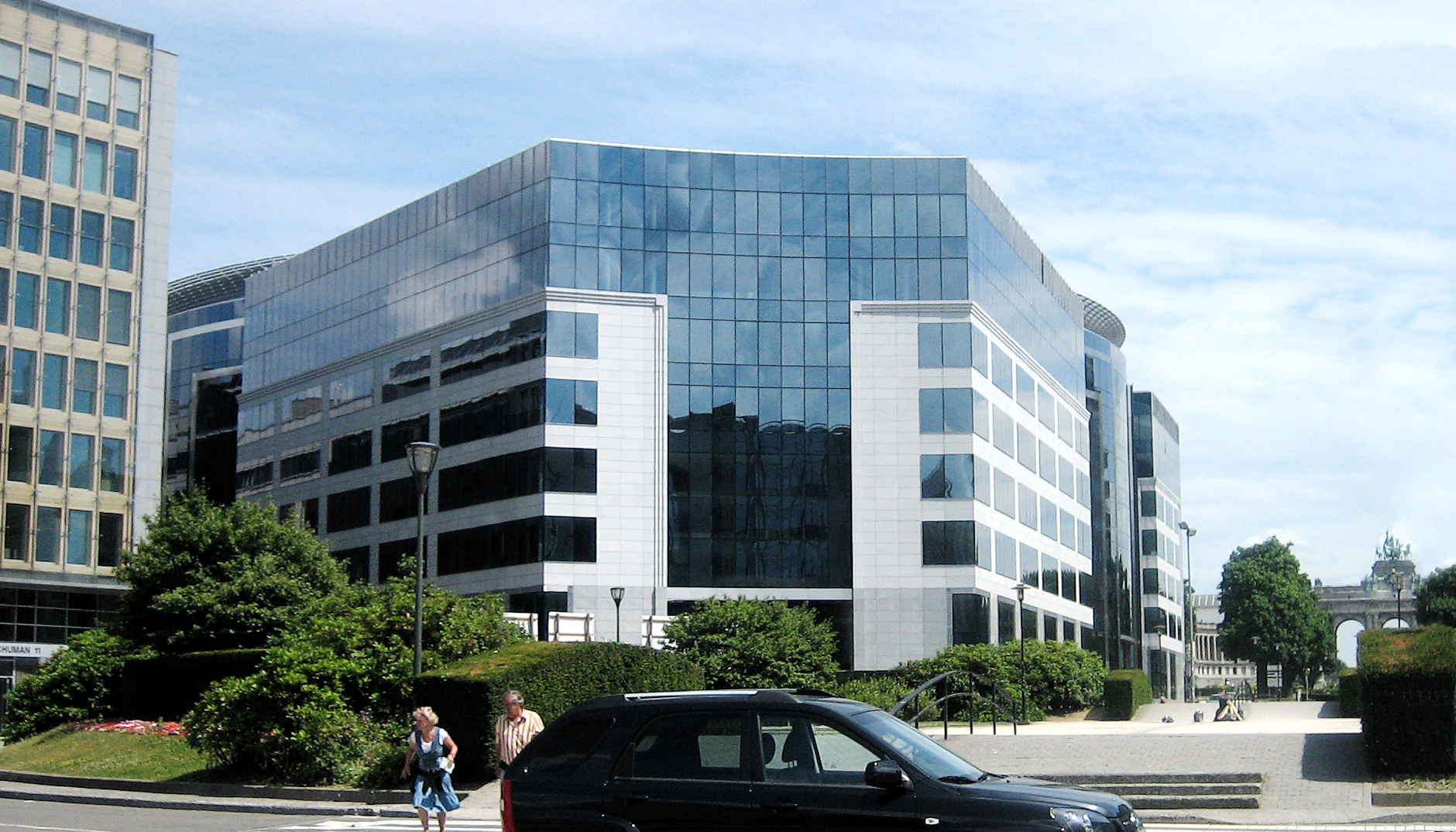|
Brussels Agreement (2013)
The First Agreement of Principles Governing the Normalisation of Relations, informally known as the Brussels Agreement ( / ''Briselski sporazum'', ), is an agreement to normalize relations between the governments of Serbia and Kosovo. The agreement, negotiated and concluded in Brussels under the auspices of the European Union, was signed on 19 April 2013. Negotiations were led by Serbian Prime Minister Ivica Dačić and Kosovo Prime Minister Hashim Thaçi, mediated by EU High Representative Catherine Ashton. The government of Serbia does not recognize Kosovo as a sovereign state, but began normalising relations with the government of Kosovo as a result of the agreement. In Belgrade, the agreement was criticized by protestors as a convalidation of Kosovo independence. Background Following the Kosovo War and the NATO bombing of Yugoslavia in 1999, Kosovo (as part of Serbia and the Federal Republic of Yugoslavia) was placed under United Nations administration under UNSC Resol ... [...More Info...] [...Related Items...] OR: [Wikipedia] [Google] [Baidu] |
Treaty
A treaty is a formal, legally binding written agreement between sovereign states and/or international organizations that is governed by international law. A treaty may also be known as an international agreement, protocol, covenant, convention, pact, or exchange of letters, among other terms; however, only documents that are legally binding on the parties are considered treaties under international law. Treaties may be bilateral (between two countries) or multilateral (involving more than two countries). Treaties are among the earliest manifestations of international relations; the first known example is a border agreement between the Sumer, Sumerian city-states of Lagash and Umma around 3100 BC. International agreements were used in some form by most major civilizations and became increasingly common and more sophisticated during the Early modern period, early modern era. The early 19th century saw developments in diplomacy, foreign policy, and international law reflected by ... [...More Info...] [...Related Items...] OR: [Wikipedia] [Google] [Baidu] |
Kosovo Independence
The 2008 Kosovo declaration of independence, which proclaimed the Republic of Kosovo to be an independent and sovereign state, was adopted at a meeting held on 17 February 2008 by 109 out of the 120 members of the Assembly of Kosovo, including the Prime Minister of Kosovo, Hashim Thaçi, and by the President of Kosovo, Fatmir Sejdiu (who was not a member of the Assembly). It was the second declaration of independence by Kosovo's Albanian-majority political institutions; the first was proclaimed on 7 September 1990. The legality of the declaration has been disputed. Serbia sought international validation and support for its stance that the declaration was illegal, and in October 2008 requested an advisory opinion from the International Court of Justice. The Court determined that the declaration did not violate international law. As a result of the ICJ decision, a joint Serbia–EU resolution was passed in the United Nations General Assembly which called for an EU-facilitated ... [...More Info...] [...Related Items...] OR: [Wikipedia] [Google] [Baidu] |
Isa Mustafa
Isa Mustafa (; born 15 May 1951) is a retired Kosovar politician. Mustafa was the mayor of Pristina from December 2007 to December 2013 and served as the prime minister of Kosovo between December 2014 and September 2017. He was the leader of the Democratic League of Kosovo (LDK) between 2010 and 2021. Early life Mustafa was born in the village of Prapashtica, in the Gollak Highlands of the District of Pristina, Kosovo on 15 May 1951, to Kosovo Albanian parents. He and his family speak Albanian in the Gheg dialect of the language. He finished primary and high school in Pristina, and attended the University of Pristina in the Faculty of Economics, where he obtained a master's degree and a PhD. In 1974 he began his professional work, as an examiner at the University of Pristina. Political career Isa Mustafa began his political career in the early 1980s, when he became the head of the municipal government of Pristina, from 1984 to 1988. In the 1990s, as Yugoslavia started to b ... [...More Info...] [...Related Items...] OR: [Wikipedia] [Google] [Baidu] |
Stabilisation And Association Process
In talks with countries that have expressed a wish to join the European Union, the EU typically concludes Association Agreements in exchange for commitments to political, economic, trade, or human rights reform in that country. In exchange, the country may be offered tariff-free access to some or all EU markets ( industrial goods, agricultural products, etc.), and financial or technical assistance. Overview Stabilisation and Association agreements are part of the EU Stabilisation and Association Process (SAP) and European Neighbourhood Policy (ENP). At present, the countries of the Western Balkans are the focus of the SAP. Specific Stabilisation and Association Agreements (SAA) have been implemented with various Balkan countries which explicitly include provisions for future EU membership of the country involved. SAAs are similar in principle to the Europe Agreements signed with the Central and Eastern European countries in the 1990s and to the Association Agreement wit ... [...More Info...] [...Related Items...] OR: [Wikipedia] [Google] [Baidu] |
Federica Mogherini
Federica Mogherini (; born 16 June 1973) is an Italian politician who served as High Representative of the Union for Foreign Affairs and Security Policy and Vice-President of the European Commission from 2014 to 2019. A member of the Democratic Party (PD), which is part of the Party of European Socialists, a political faction made up of centre-left national political parties in the European Union, the United Kingdom, and Norway. She previously served as Italy's Minister for Foreign Affairs and International Cooperation from February to October 2014 in the Renzi government. She was a member of the Chamber of Deputies (MP) from 2008 to 2014. In 2020, she was appointed rector of the College of Europe, a post-graduate university for European studies in Bruges (Belgium), Natolin (Poland), and Tirana (Albania). Early life and education Mogherini was born on 16 June 1973 in Rome to the family of the film director and set designer Flavio Mogherini (1922–1994). Mogherini attende ... [...More Info...] [...Related Items...] OR: [Wikipedia] [Google] [Baidu] |
European External Action Service
The European External Action Service (EEAS) is the diplomatic service in charge of executing all Foreign relations of the European Union, international relations of the European Union. The EEAS is led by the Vice-President of the European Commission, vice-president of the European Commission for High Representative of the Union for Foreign Affairs and Security Policy, Foreign Affairs and Security Policy (HR/VP), who is also President of the Foreign Affairs Council, and carries out the EU's Common Foreign and Security Policy (CFSP), including the Common Security and Defence Policy (CSDP). The EEAS does not propose or implement policy in its own name, but prepares acts to be adopted by the High Representative of the Union for Foreign Affairs and Security Policy, High Representative, the European Commission or the Council of the European Union, Council. The EEAS is also in charge of EU diplomatic missions (List of diplomatic missions of the European Union, delegations) and intel ... [...More Info...] [...Related Items...] OR: [Wikipedia] [Google] [Baidu] |
International Recognition Of Kosovo
International governments are divided on the issue of recognition of the independence of Kosovo from Serbia, which was 2008 Kosovo declaration of independence, declared in 2008. The Government of Serbia does not diplomatically recognise Kosovo as a sovereign state, although the two countries have enjoyed normalised economic relations since 2020 and have agreed not to try to interfere with the other's accession to the European Union. , out of () United Nations member states, 22 out of 27 () European Union member states, 28 out of 32 () NATO member states and 36 out of 57 () Organisation of Islamic Cooperation member states have recognised Kosovo. In total, Kosovo has received 116 diplomatic recognitions by UN member states, however conflicts have arisen regarding the exact number of countries recognising Kosovo. Kosovo claims that the number of countries recognising its independence is 119, whilst Serbia claims the number is 84, stating that some countries have withdrawn r ... [...More Info...] [...Related Items...] OR: [Wikipedia] [Google] [Baidu] |
United Nations Security Council Resolution 1244
United Nations Security Council resolution 1244, adopted on 10 June 1999, after recalling resolutions 1160 (1998), 1199 (1998), 1203 (1998) and 1239 (1999), authorised an international civil and military presence in the Federal Republic of YugoslaviaMember States of the United Nations, UN.org "Serbia – date of admission 1 November 2000, The Federal Republic of Yugoslavia was admitted as a Member of the United Nations by General Assembly resolution A/RES/55/12 of 1 November 2000. On 4 February 2003, following the adoption and promulgation of the Constitutional Charter of Serbia and Montenegro by the Assembly of the Federal Republic of Yugoslavia, the official name of "Federal Republic of Yugoslavia" was changed to Serbia and Montenegro. In a letter dated 3 June 2006, the President of the Republic of Serbia in ... [...More Info...] [...Related Items...] OR: [Wikipedia] [Google] [Baidu] |
United Nations Interim Administration Mission In Kosovo
The United Nations Interim Administration Mission in Kosovo (; sr-Cyrl-Latn, Привремена административна мисија Уједињених нација на Косову, Privremena administrativna misija Ujedinjenih nacija na Kosovu; UNMIK) is the officially mandated mission of the United Nations in Kosovo. The UNMIK describes its mandate as being to "help the United Nations Security Council achieve an overall objective, namely, to ensure conditions for a peaceful and normal life for all inhabitants of Kosovo and advance regional stability in the Western Balkans." The UNMIK was established pursuant to Security Council Resolution 1244, which was passed on 10 June 1999. The Resolution authorised an international civil and military presence in the Federal Republic of Yugoslavia.Member States of ... [...More Info...] [...Related Items...] OR: [Wikipedia] [Google] [Baidu] |
Federal Republic Of Yugoslavia
The State Union of Serbia and Montenegro or simply Serbia and Montenegro, known until 2003 as the Federal Republic of Yugoslavia and commonly referred to as FR Yugoslavia (FRY) or simply Yugoslavia, was a country in Southeast Europe located in the Balkans that existed from 1992 to 2006, following the Breakup of Yugoslavia, breakup of the Socialist Federal Republic of Yugoslavia (SFR Yugoslavia). The state was founded on 27 April 1992 as a federation comprising the Republic of Serbia (1992–2006), Republic of Serbia and the Republic of Montenegro (1992–2006), Republic of Montenegro. In February 2003, it was transformed from a federal republic to a Confederation, political union until Montenegro seceded from the union in June 2006, leading to the full independence of both Serbia and Montenegro. Its aspirations to be the sole legal successor state to SFR Yugoslavia were not recognized by the United Nations, following the passing of United Nations Security Council Resolution ... [...More Info...] [...Related Items...] OR: [Wikipedia] [Google] [Baidu] |
Republic Of Serbia (1992–2006)
The Republic of Serbia ( sh-Cyrl-Latn, Република Србија, Republika Srbija, separator=" / ") was a constituent state of the Federal Republic of Yugoslavia between 1992 and 2003 and the Serbia and Montenegro, State Union of Serbia and Montenegro from 2003 to 2006. With Montenegro's secession from the union with Serbia in June 2006, both became sovereign states in their own right for the first time in nearly 88 years. After the League of Communists of Yugoslavia collapsed in 1990, the Socialist Republic of Serbia led by Slobodan Milošević's Socialist Party of Serbia, Socialist Party (formerly the League of Communists of Serbia, Communists) adopted a new constitution, declaring itself a constituent republic with democratic institutions within Yugoslavia, and the "Socialist" adjective was dropped from the official title. As Breakup of Yugoslavia, Yugoslavia broke up, in 1992 Serbia and Montenegro formed a new federative state called the Federal Republic of Yugoslavia, k ... [...More Info...] [...Related Items...] OR: [Wikipedia] [Google] [Baidu] |




